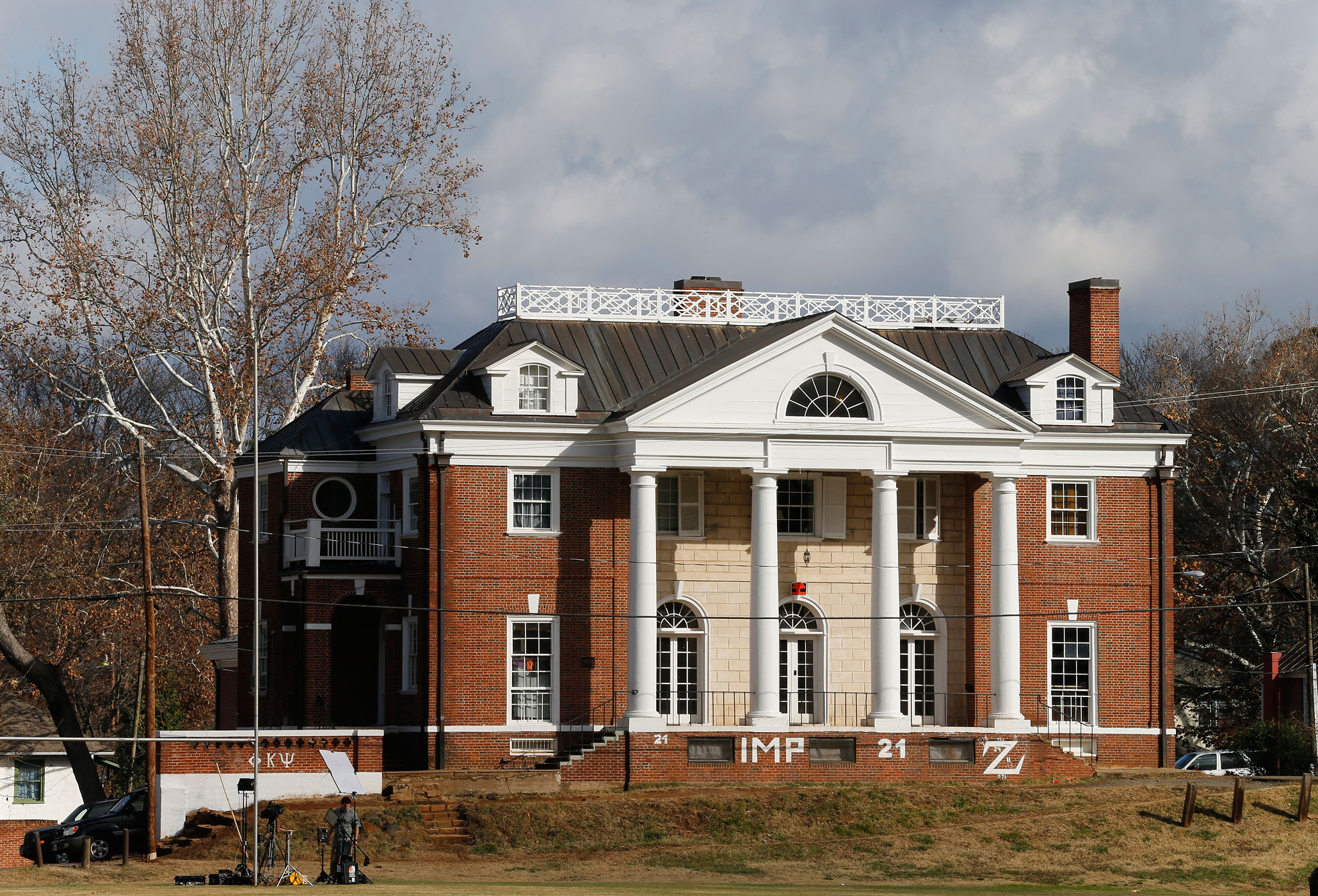
When I first spoke out against fraternity culture, sharing the grim details of my former frat’s degrading, dangerous, and humiliating hazing practices, some of my peers wrote on an anonymous campus message board that I would be hanged on the center of the college green.
As a former brother of the Dartmouth chapter of “the deadliest fraternity in America,” an organization that somehow, either despite or through its cultish obsession with vomit, misogyny, and substance abuse, routinely produces influential members of society (former Treasury Secretary Hank Paulson being one prominent alumnus), I can sadly say that I’m not surprised by the litany of articles illustrating the criminal underside of fraternities, from the alleged frat gang rape at the University of Virginia, to the numerous hazing deaths nationwide, to the misogyny of the Princeton eating club Tiger Inn, to the inability of university administrators to make their campuses safe—an incompetence so extreme it has left students no choice but to petition the federal government for help.
What is shocking, though, is how our national conversation shifts to static and inaction after our initial outrage. Why do so few schools seem willing to abolish their Greek systems, even in the face of alarming crime statistics and disturbing scandals? Big donations and alumni loyalty may seem impressive, but the data is clear: fraternity brothers are 300% more likely to commit rape than unaffiliated students. Likewise, sorority membership offers no counterbalance. It’s a risk factor, too, as women who live in sororities are three times more likely to be the victim of such a crime than those who don’t.
Instead of asking what administrations will do after college students have already been raped, hazed, or discriminated against, when are we going to start asking—demanding—that they eliminate from their campuses the anachronistic 19th century organizations that enable these crimes, shelter their perpetrators, and attempt to discredit survivors?
Secretive, gender-segregated, and racially or socioeconomically exclusionary drinking clubs don’t offer a social or educational utility that couldn’t be better created by a less problematic system. In direct opposition to the values of higher ed, frats exist solely based on the “otherization” of non-members. Through hazing, members become part of a collective identity, and in so doing learn that physically and psychologically harming other students is somehow not only normal, but a practice associated with privilege and social capital. Other students are not brothers; they can be insulted. Pledges are not brothers; they can be dehumanized. Women are not brothers and never can be; they can be degraded. The problem is both collective and structural in nature, and it’s not reducible to the case of a “few bad apples,” as apologists claim.
Two years after Rolling Stone chronicled my former fraternity’s hazing culture, causing a national scandal and call for reform that somehow did not penetrate the insular, regressive, and tone deaf bubble enveloping Dartmouth’s administration, fraternities there are still the dominant conduit of student life. Meanwhile, students are still being hazed. They are still being sexually assaulted. And, of course, the Rolling Stone piece on UVA’s alleged gang rape has moved that school to only shut down the fraternities until… January. When will they get serious?
Who runs these schools—and for whom? Do administrators and trustees simply not care enough about the well being of their own students, especially at a time when data show an epidemic of rape concomitant with an epidemic of general depression and mental health issues on campus? Do administrators care, but lack courage? Or do they care, a little bit—the obligatory type of public relations caring whenever a scandal hits, before they revert to caring more about other things like their own next job, the ranking of their school, or big donations, the kind which historically come from privileged alums who have benefited from, and revel in, the type of disgusting good old boy behavior that is the root of the dysfunction in the first place?
It’s time to accept that these 19th century institutions simply do not play a role in the 21st century, and that they reflect and continue to subtly transmit the values of an era to which we should not want to return. My former fraternity, Sigma Alpha Epsilon, was founded in the Antebellum South—during a time when lynchings, strangely like the one threatened against me, were not uncommon. That fraternity, like many others, was founded before women could go to college, before they could vote, and before they could enter the workplace. It was founded when only the wealthy could receive an education. It was founded when slavery was legal. It was founded before LGBTQ rights. And fraternities at large, of course, were first founded in direct opposition to the educational mission of their host schools.
Fraternity culture has clearly and repeatedly demonstrated itself to be antagonistic to the safety of women, its own members, the values of education, and communities at large—and it’s time for it to be replaced with something safe.
Higher education should produce scholarship—not survivors. The question is not “why” we should abolish fraternities from institutions of higher learning, but “how soon can we do it?” Today would be a good time to start.
Andrew Lohse is the author of Confessions of an Ivy League Frat Boy. He attended Dartmouth College, where he majored in English. His writing has appeared in Cosmopolitan and Rolling Stone.
More Must-Reads from TIME
- Cybersecurity Experts Are Sounding the Alarm on DOGE
- Meet the 2025 Women of the Year
- The Harsh Truth About Disability Inclusion
- Why Do More Young Adults Have Cancer?
- Colman Domingo Leads With Radical Love
- How to Get Better at Doing Things Alone
- Michelle Zauner Stares Down the Darkness
Contact us at letters@time.com